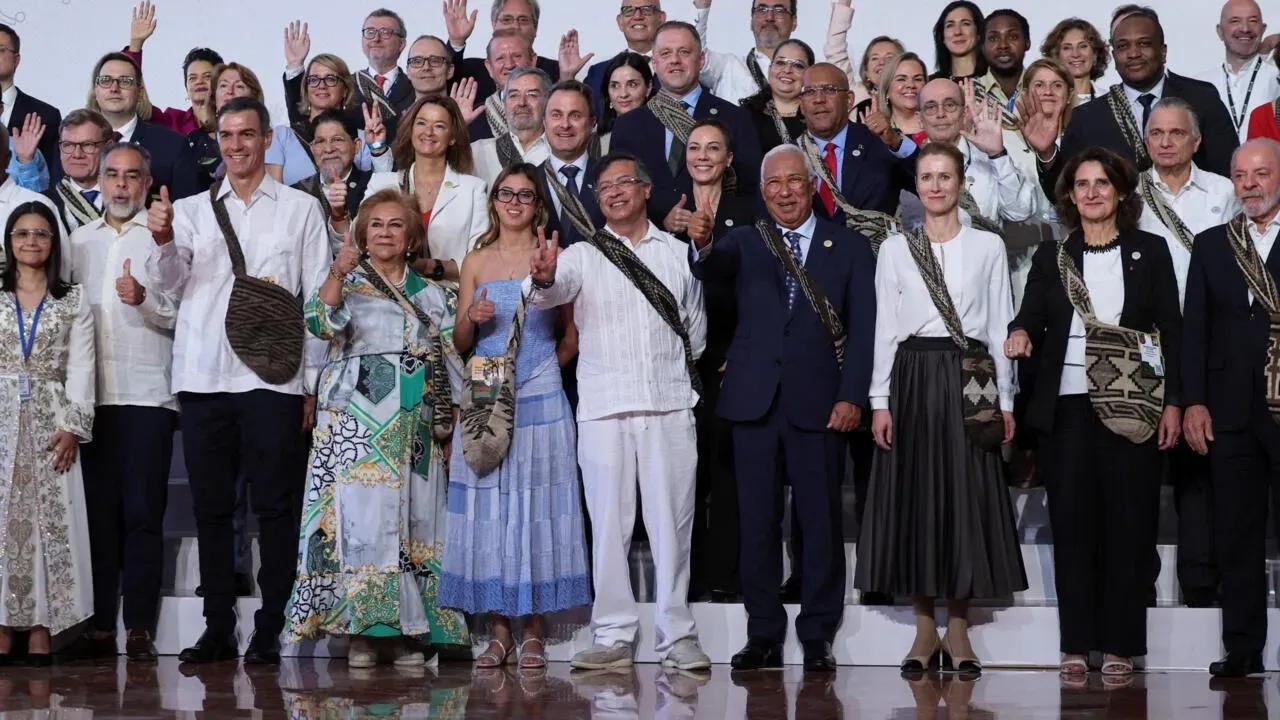Jesús Daniel Romero for Poder & Dinero and FinGurú
Analytical Synthesis – Intelligence and Power
CELAC has become the most vulnerable political instrument in the hemisphere: a fractured bloc where anti-American rhetoric and state-sponsored narcoterrorism converge. The conflict between Washington and transnational criminal organizations reveals that the discourse of integration has been replaced by the defense of illicit interests and corrupt power structures. The recent summit in Santa Marta exposed the collapse of regional consensus and the loss of all moral authority of the bloc.
Narcoterrorism has transformed into the real axis of power in several member countries. Venezuela, Bolivia, Honduras, Nicaragua, and Colombia —already decertified by the U.S.— form a circuit of impunity where organized crime captures institutions and replaces governance. The Cartel of the Suns and the Tren de Aragua now project themselves as hemispheric actors with financial, logistical, and political networks.
CELAC, unable to demand cooperation or transparency, is dissolving as a diplomatic actor and consolidating as a refuge for crime-aligned regimes. Latin American integration, once a political ideal, is now the scaffolding of impunity.
Analysis
The current crisis has reduced CELAC to a scenario of ideological confrontation. The CELAC-EU summit in Santa Marta (2025) ended without consensus after Venezuela and Nicaragua refused to sign the final declaration. European diplomats described the event as a "diplomatic suicide" that confirmed the internal fracture.
The Caribbean-Bolivarian axis uses CELAC as a political shield against international sanctions. Since the designation of the Cartel of the Suns as a Specially Designated Global Terrorist Organization (SDGT) in July 2025, the Maduro regime has intensified its anti-American rhetoric and deepened ties with Russia, Iran, and Hezbollah. According to the Atlantic Council (2024) and the CSIS (2024), these ties have enabled the establishment of funding, training, and regional money-laundering networks under state protection.
The Central American region is suffering the consequences. Honduras, Belize, and Guatemala present homicide rates between 20 and 25 per 100,000 inhabitants, driven by maritime trafficking from Venezuelan Caribbean. Studies by UNODC and George Mason University indicate that more than 70% of homicides in Belize and Honduras are related to firearms and drug trafficking organizations.
The decertification of Colombia by the U.S. in September 2025, after thirty years of cooperation, and the inclusion of President Gustavo Petro and his circle on the Clinton List of OFAC for alleged links with drug trafficking, marked a turning point. An old strategic ally has now become a vulnerable link within the hemispheric system.
The correlation is evident: the countries promoting the anti-American narrative within CELAC coincide with those identified by Washington as major producers or trafficking corridors of drugs. Ideology has become the cloak covering criminality. Meanwhile, powers like Russia, Iran, and China are filling the regional leadership vacuum through military cooperation, opaque investment, and strategic disinformation.
Strategic Recommendations
To reverse the pro-narcotics and pro-terrorist drift, democratic governments must articulate an operational coalition outside CELAC that prioritizes maritime security, intelligence cooperation, and judicial transparency.
Financial sanctions should target the logistical operators of the Cartel of the Suns and the Tren de Aragua, while tightening port and air control through ISR technologies that integrate AIS, SAR, RF, and ADS-B. National laws should classify these organizations as terrorists, enabling immediate extraditions and the confiscation of illicit assets.
International aid should be conditioned on verifiable outcomes: seizures, convictions, clean police units, and certified secure ports. Public communication must show that maritime security saves Central American lives and does not respond to foreign interests.
But the battle is more than technical. It’s moral. Latin America must decide whether it continues to be complicit in crime or assumes the political cost of reclaiming its sovereignty. Every dollar, every gallon of fuel, and every policy denied to drug trafficking is a victory of freedom over corruption.
Author's Note
LCDR (Ret.) Jesús Daniel Romero is a strategic analyst specializing in hemispheric intelligence, maritime operations, and regional security. A former naval intelligence officer and diplomat with assignments in several Latin American countries, he has led interdiction programs, international cooperation, and institutional strengthening. He is the author of The Cartel of the Suns: A Criminal Trojan Horse and Final Flight: Queen of Air, and founder of the strategic analysis platform Intelligence and Power.

Comments